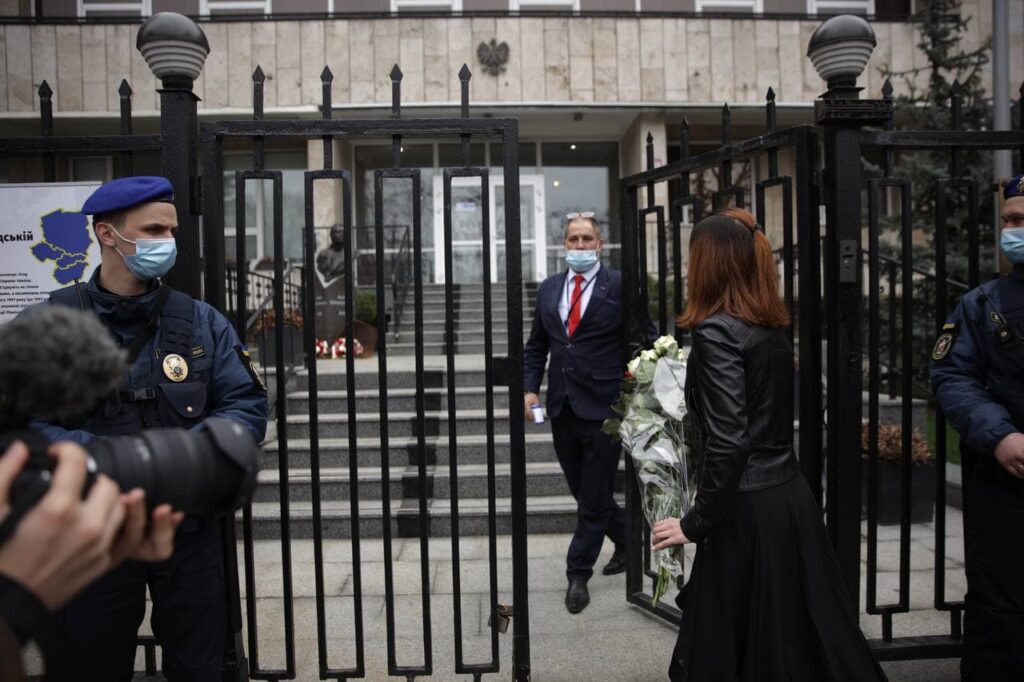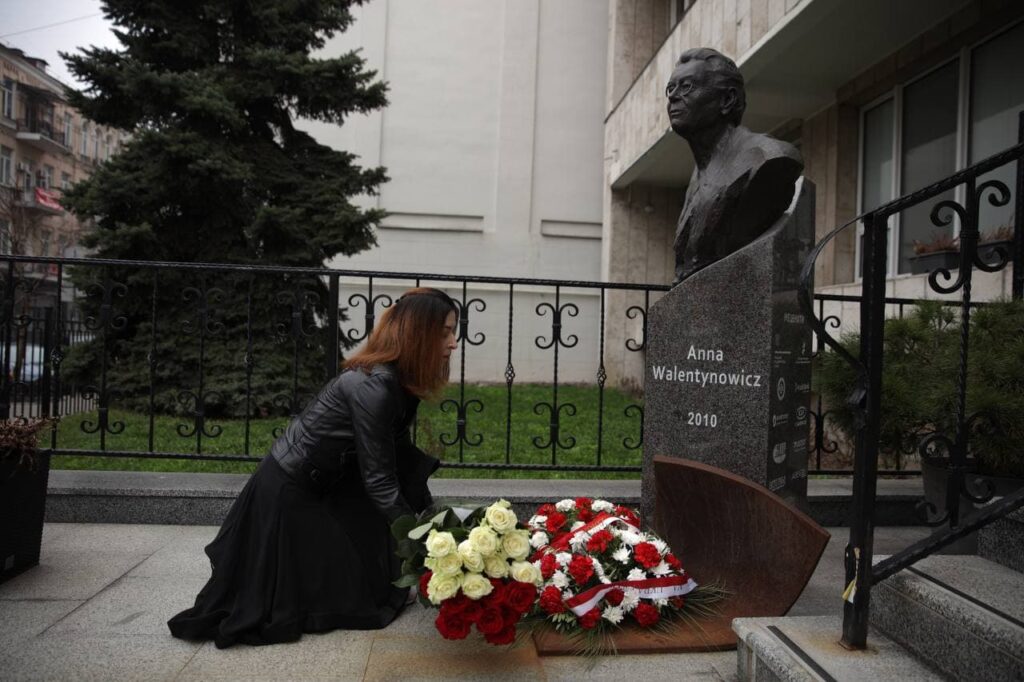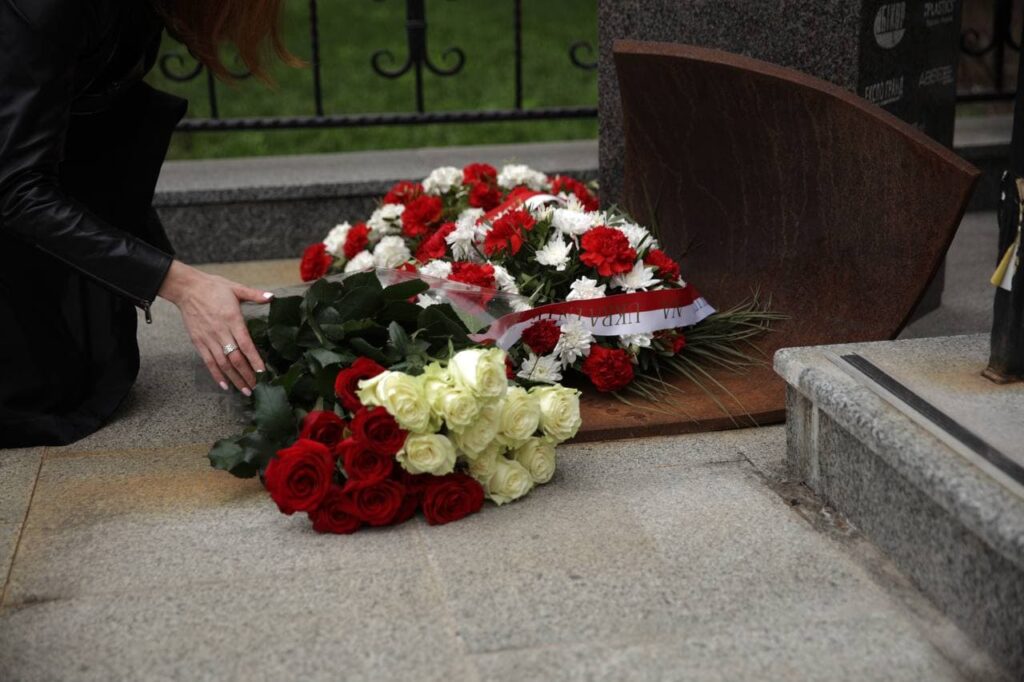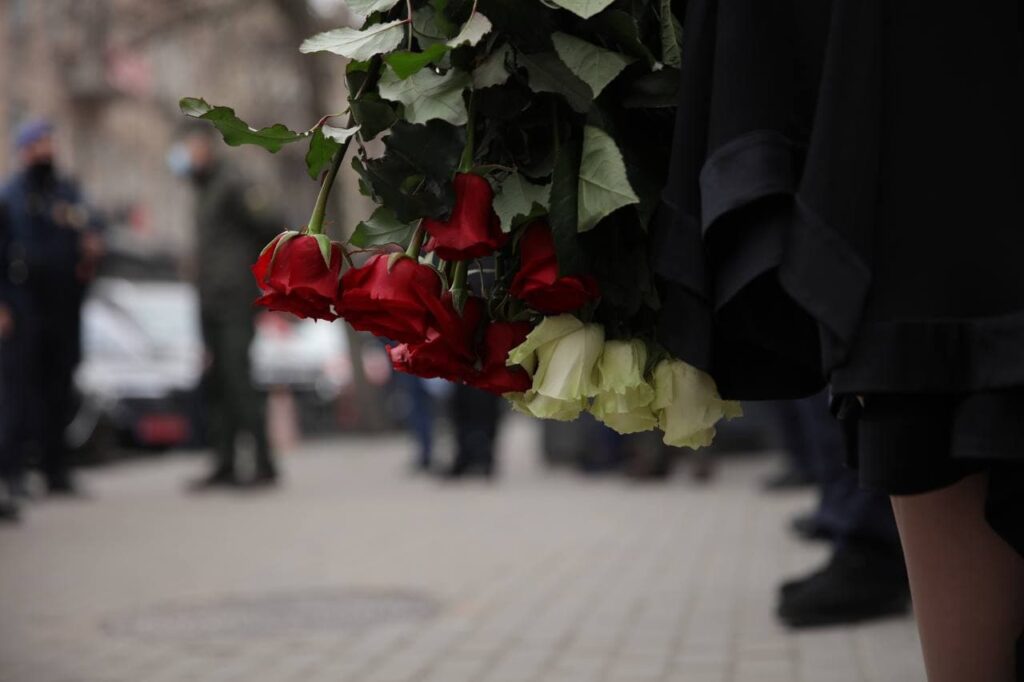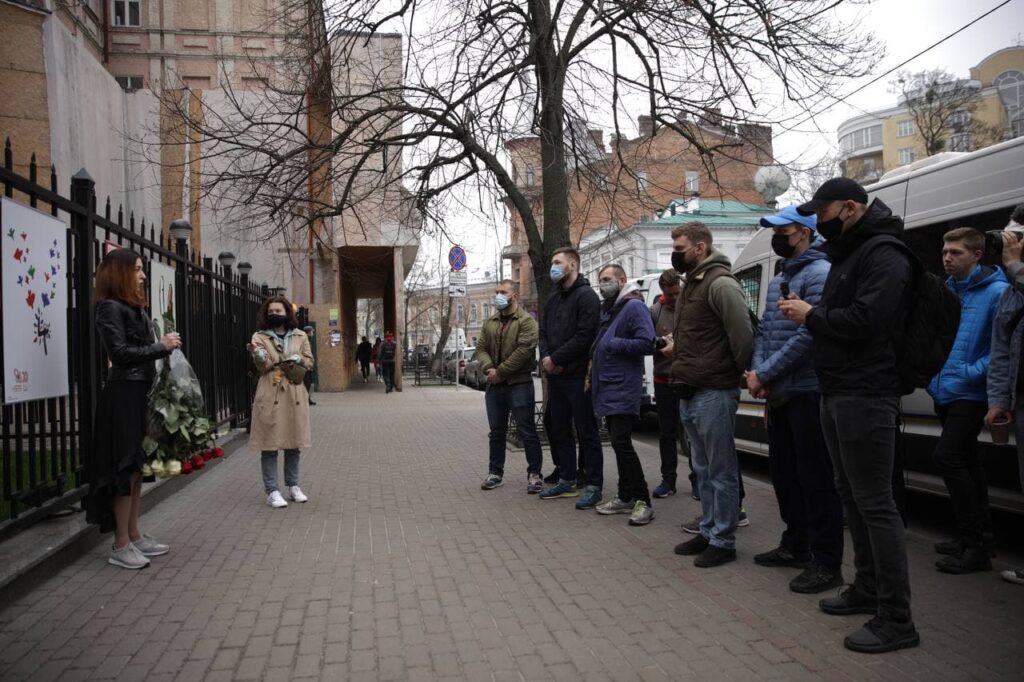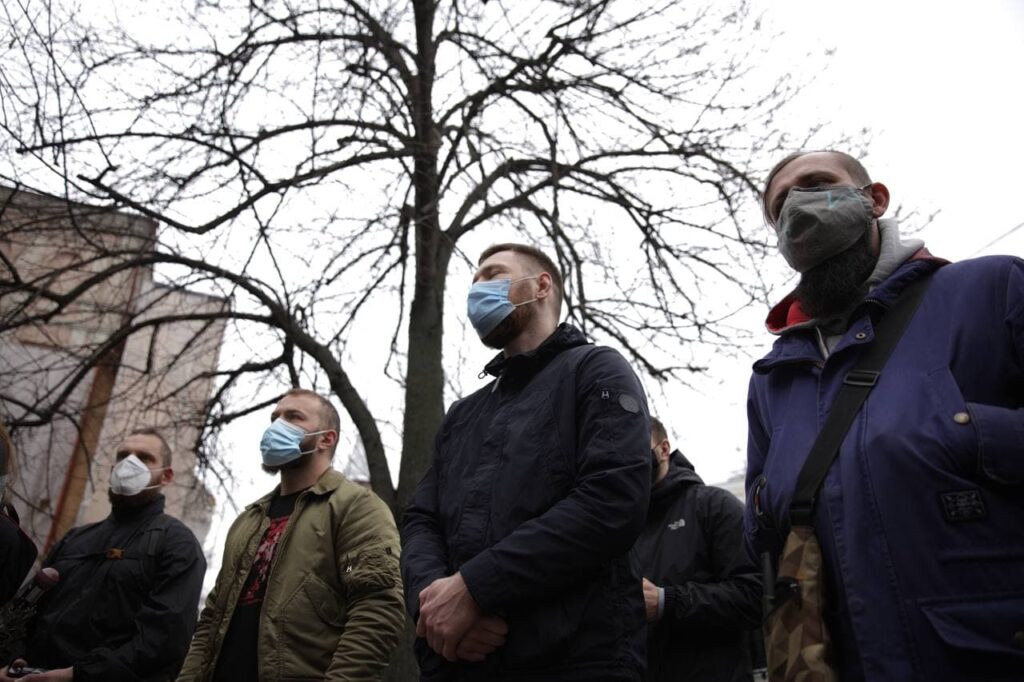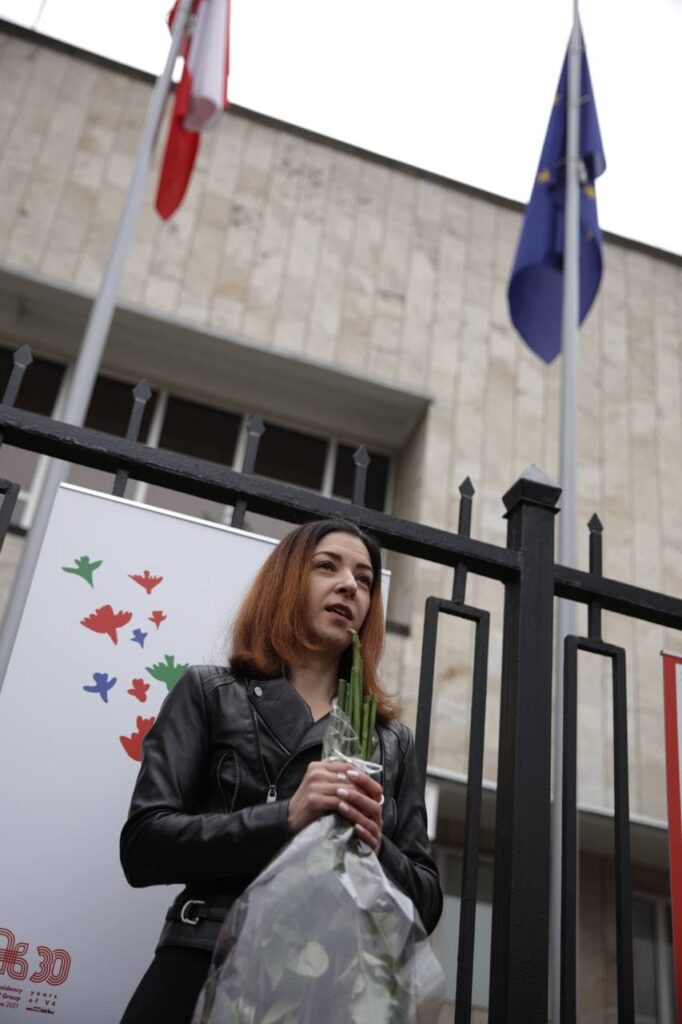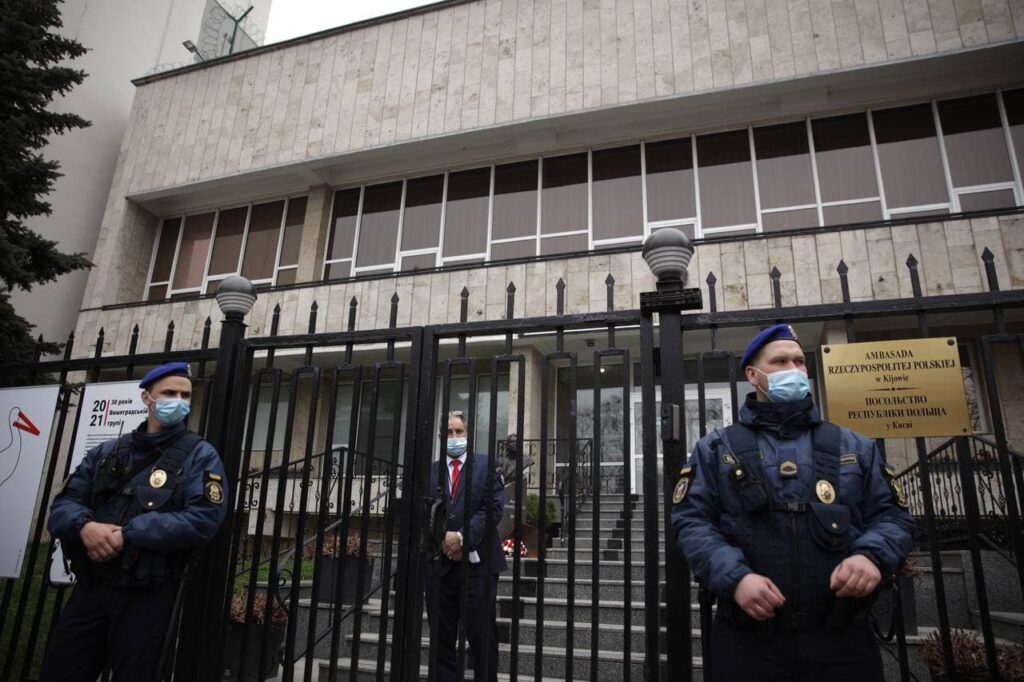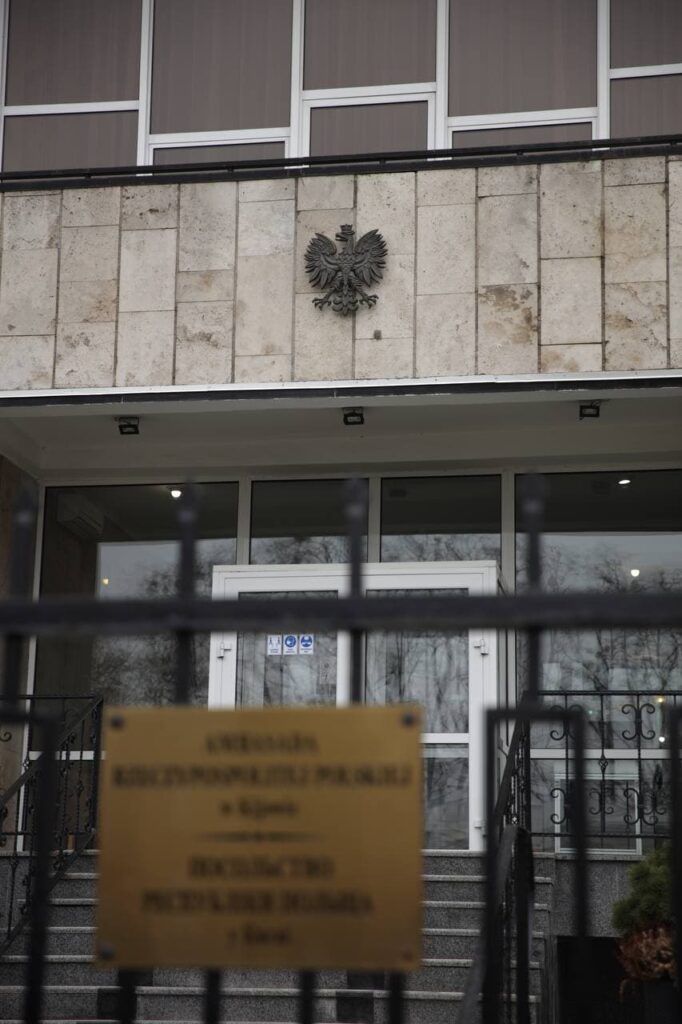Today, we gathered at the Embassy of the Republic of Poland in Kyiv on the occasion of the 81st sad anniversary of the Katyn Execution, but not only this.
It would seem that this war crime of the Second World War is a thing of the past. It would seem that Russia, albeit recognizing itself as the successor to the USSR, condemns these pages of Soviet history, and the death of Polish President Lech Kaczynski, as well as 96 other Polish officials in a plane crash near Smolensk on their way to the official events in Russia commemorating the Katyn massacre in 2010, is twice an accident, not a recurrence of the Kremlin’s aggression against the Polish political elite.
But we know that, according to the latest findings of a Polish expertise, which recently shocked Polish society, on the wreckage of a crashed plane near Smolensk an explosive was found. These findings can be further verified, but what other evidence is needed to prove the revival of the Soviet Union’s aggressive policies under the guise of pacifist and anti-Nazi rhetoric in the 8th year of Russia’s intervention in eastern Ukraine and annexation of the Crimea ostensibly to protect Russian and Russian-speaking population?
For today, on the 81st anniversary of the Katyn massacre, we are experiencing an unprecedented concentration of Russian troops on the border with Ukraine, and in the occupied Crimea, Ukrainian citizens keep getting detained and sentenced to fantastic prison terms. Continuation of the Kremlin’s old aggressive policy towards the countries of the region is also evident in Poland. On April 10, the day when the Poles honor annually those fallen in the Smolensk catastrophe, they held rallies in solidarity with the Ukrainians detained by the Crimean occupation administration. These are 66-year-old Halyna Dovhopola, sentenced to 12 years in prison, Vladyslav Yesypenko, a Radio Svoboda journalist, who was tortured, and Oleg Fedorov, who is undergoing a compulsory forensic medical examination in a psychiatric hospital.
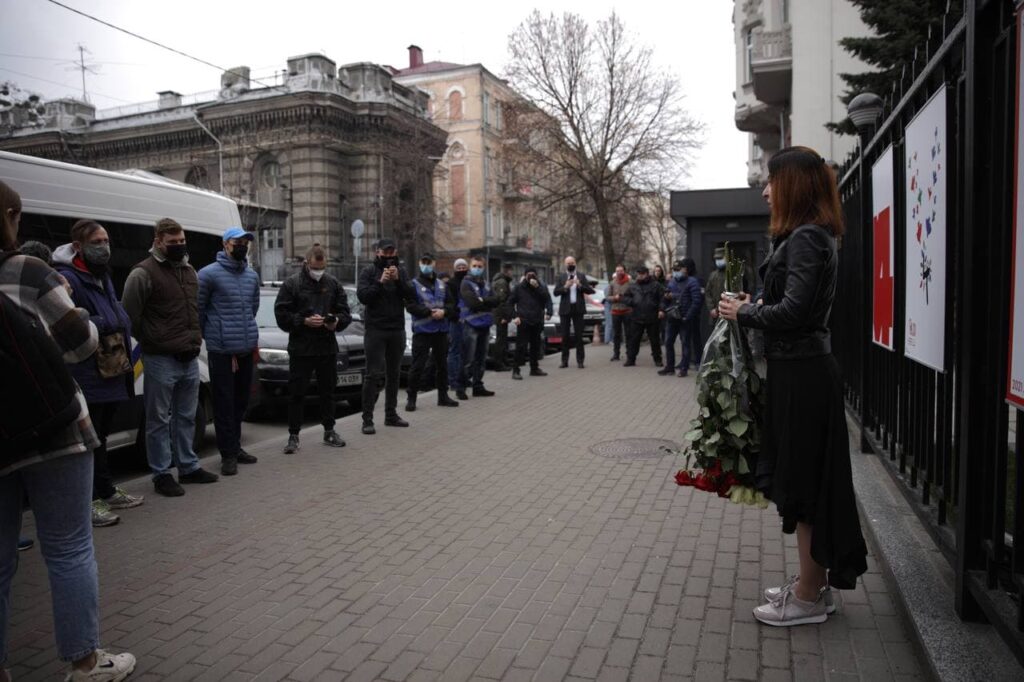

Revival of the aggressive policies of the totalitarian regimes of the 20th century towards the region was already clear in 2008, when Russia, as the successor to the Soviet Union, a country that divided Poland in half under the Molotov-Ribbentrop Pact, which the Kremlin tries to silence, launched an armed aggression in Georgia. It was then that Polish President Lech Kaczynski spoke at a rally in Tbilisi along with the heads of the Baltic States, expressing the prophetic assumption that today Georgia fell victim to Russia, tomorrow it will be Ukraine’s turn, and then the same fate might befall his homeland, Poland.
As we can see, today his assumption came true as accurately as possible, the only addition being the link between Ukraine and Poland, Belarus, whose people suffer from punitive actions of the Lukashenko regime. The latter has repeatedly taken the right steps towards regional integration, but launching a repressive machine against its own people and succumbing to the idea of a “union state” with the Russian Federation, that is, becoming its subject, once and for all linked his destiny with the Kremlin and Putinism. Since the beginning of the protests across Belarus, many Polish citizens have been detained and severely beaten while expressing solidarity with the Belarusians, who, in turn, massively supported Ukraine’s fight against the aggressor in eastern Ukraine, including with arms in their hands. That is why, simultaneously with the Polish actions of solidarity in support of the detained Ukrainians in the occupied Crimea, we will soon move to the Belarusian embassy demanding the release of the Poles who were recently detained during the protests in Minsk and all the protesters against Belarus’ forced accession to Russia and police cruelty against the Belarusian people.
The mirror accusations made by the puppet regime of Lukashenko against the detained Poles, who are Belarusian citizens, are based on the best traditions of the Soviet government: “incitement to ethnic hatred and rehabilitation of Nazism.” Moreover, three of them are women (Andżelika Borys, Irena Biernacka, Maria Tiszkowska) and Andrzej Poczobut, who will “celebrate” his birthday on April 16 in prison.
Therefore, before we move to the Belarusian embassy, our task is to remind the Kremlin and the whole world who is a real “Nazi” in the quotation marks, who not only incites ethnic hatred in the region, but literally destroys the representatives of “fraternal peoples” by waging wars with neighbors and repressing their citizens in the controlled and occupied territories. We return to where we started: no one will believe the Kremlin’s mournful distance from the Soviet government’s crime in Katyn in 1940, when the NKVD shot viciously over 20,000 Polish officers and the civilians, the flower of the Polish nation. The louder Russia and its lobbyists around the world shout about “Nazism,” the more obvious becomes the cynicism with which it pursues a real policy of aggression in the 21st century, while its “economic partners” in the European Union often turn a blind eye to this.
On the eve of the Normandy format talks on resolving the situation in the Donbas, while Russia keeps threatening with weapons on the border of Ukraine, on behalf of National Corps and the Intermarium Support Group, which was founded by the party leader Andriy Biletsky, we would like to remind you that only the countries of the region, which has opposed for centuries the Kremlin’s imperialist ambitions, are the true allies of Ukraine. In particular, I say this as a student who was expelled from the scholarship program at the Austrian Institute for Human Sciences in January this year for being a board member of National Corps under pressure of the Kremlin lobbyists and loud applause by infamous pro-Russian blogger Anatoly Shariy, who has been recently declared wanted by the Security Service of Ukraine. The situation is covered in detail in the major Polish newspaper Kurier Wnet.
In this article, I wrote that the Poles and the Ukrainians should end all historical wars once and for all, reconciling their policies of national memory in the face of double pressure from Russia and its “useful idiots” or voluntary allies in the West. An example of such an attack in the Polish context is an attempt to introduce in the West the wording “Polish,” and not only German, “death camps” (a kind of analogue of the alleged Galician eager “police” collaborationists with the Third Reich). In practice, this essentially Soviet policy of historical memory is manifested in the fact that Eastern European patriots are expelled from Western educational institutions as “right-wing extremists,” and the Lukashenko regime detains members of the Union of the Poles in Belarus, including the school principal, for the “rehabilitation of Nazism,” as well as expels the Consul General of Poland in Brest Jerzy Timofiejuk for participating (unofficially) in an event dedicated to the Polish “cursed soldiers,” members of the Polish anti-communist movement of 1940-55, that is, for the “heroization of Nazism.” It is obvious that the vector of the Intermarium is the most natural and promising for Belarus, too, which is artificially kept in the orbit of the Russian Federation due to gas blackmail and the Soviet policy of historical memory.
That is why we know that Russia will never agree to the proposal to move the Minsk talks to Poland, which has recently been made by former Ukrainian President Leonid Kravchuk. But the toxicity of Minsk, due to Lukashenko’s dictatorship, is growing, and we came to the embassy today also in order to signal the need to change the Minsk format.
We thank the Vice Speaker of the Polish Parliament Malgorzata Gosiewska for her reports on Russian war crimes in the Donbas for the Criminal Court in The Hague (year 2014 and new sections), and, on our part, we once again draw the world’s attention to the terrible Soviet crime in Katyn in 1940.
Praise and honor to the fallen Polish officers – victims of the Katyn Execution by the NKVD! Eternal memory to Polish President Lech Kaczynski and all those killed in the plane crash near Smolensk.
